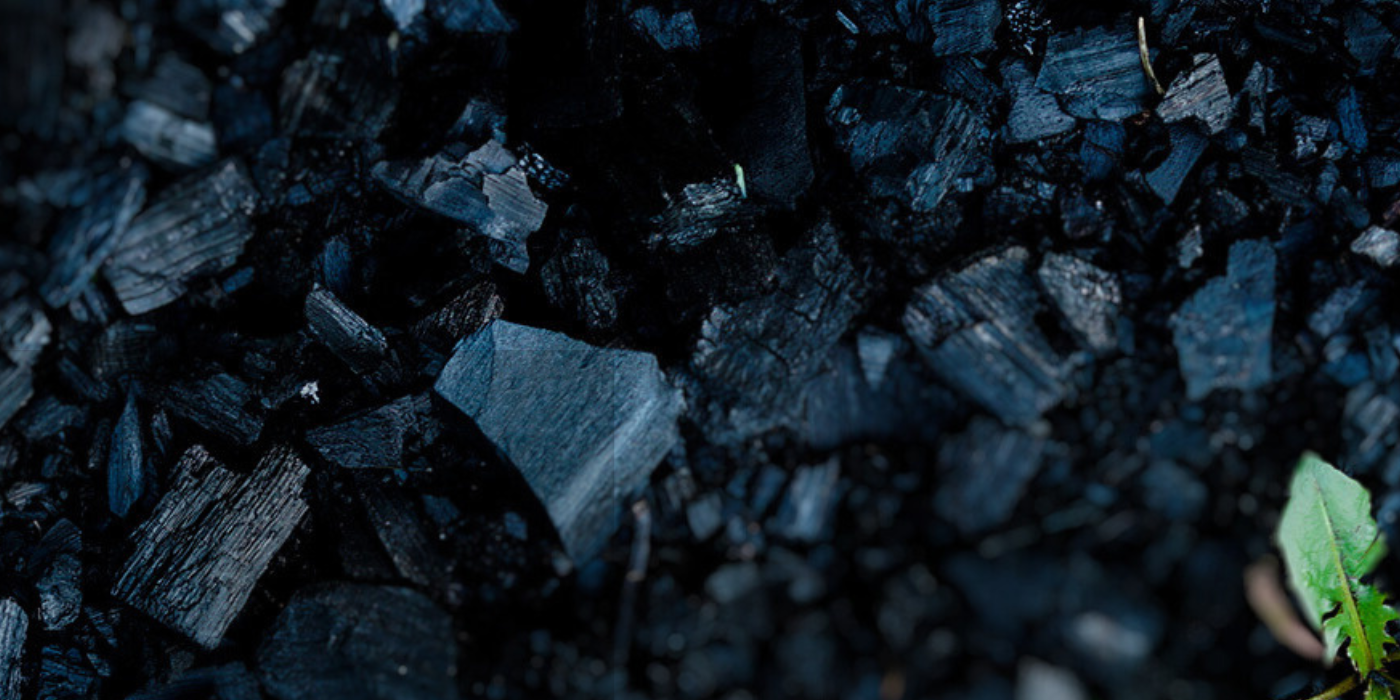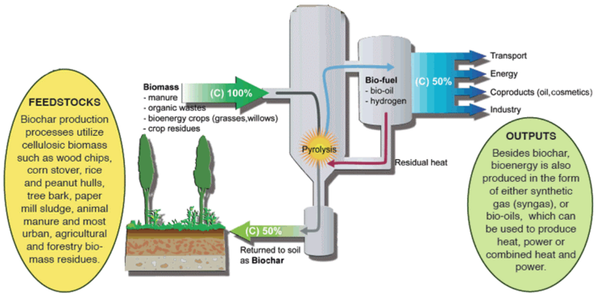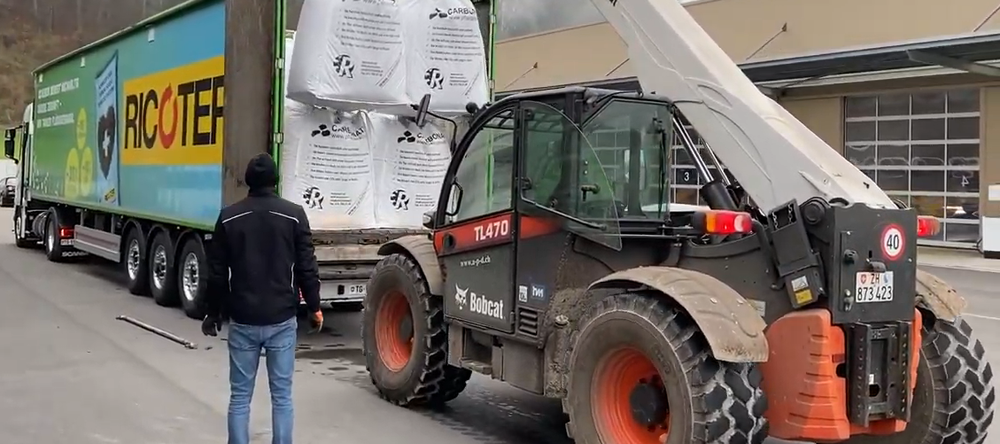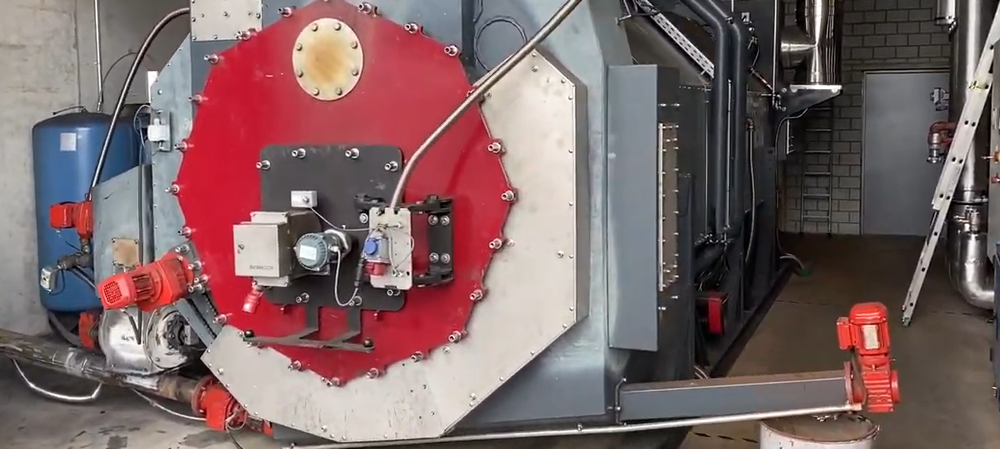
Biochar is made up of a complex network of pores and channels. This structure gives the material a high surface area and allows it to adsorb and retain nutrients and water. Biochar also has a negative electrical charge, which attracts positively charged cations, such as calcium, magnesium, and potassium.
What benefits does biochar have?
Climate change mitigation
Biochar can remove carbon dioxide from the atmosphere and store it in the soil. When biomass is pyrolyzed, the carbon is converted into a stable form that is resistant to decomposition. This means that biochar can sequester carbon in the soil for centuries, helping to reduce greenhouse gas emissions and mitigate climate change.
Improved soil health
Biochar can improve soil health in a number of ways. It can increase soil fertility by adsorbing and retaining nutrients, such as nitrogen, phosphorus, and potassium. Biochar can also improve soil water retention and drainage, and it can reduce soil erosion.
Increased crop yields
Biochar can help farmers to produce more food on less land. Studies have shown that biochar application can increase crop yields by up to 30%. This is because biochar improves soil fertility and water retention, and it can also help to reduce pests and diseases.
Reduced greenhouse gas emissions
Biochar can reduce greenhouse gas emissions from agriculture in a number of ways. It can reduce nitrous oxide emissions from fertilized soils, and it can also reduce methane emissions from livestock.
Biochar's carbon removal potential
Recent estimates suggest that biochar has the potential to remove 1.1 to 3.3 gigatonnes of carbon dioxide from the atmosphere each year by 2030. This is equivalent to the annual emissions of over 700 coal-fired power plants.
The actual amount of carbon that can be removed with biochar will depend on a number of factors, including the type of biomass used, the pyrolysis process, and the application rate. However, even if biochar is used to remove a small portion of global emissions, it can still play a significant role in mitigating climate change.
Innovative biochar projects
A number of innovative biochar projects are underway around the world. For example:
- The Future Forest Company is using biochar to enhance reforestation projects, removing ten times more CO2 than biomass alone.
- Charm is using fast pyrolyzers to convert biomass into bio-oil, which is then injected underground for permanent storage.
- Oregon Biochar Solutions is manufacturing ultra-pure biochar on an industrial scale from logging operations in the Pacific Northwest.

These projects are demonstrating the potential for biochar to be used in a variety of innovative ways to remove carbon from the atmosphere and improve soil health.
Commercial application of biochar
One successful example of commercial biochar application is the A-P-D (Auen care service) project in Zurich, Switzerland. A-P-D operates a small biochar pyrolysis plant that converts biomass residues from local farms into biochar. The biochar is then used on local farms to improve soil health and crop yields. The thermal energy generated during the production of the biochar is also used to heat nearby buildings.
The A-P-D project demonstrates the potential for biochar to create a revenue stream from waste biomass, improve regional soil quality, and create further benefits of sustainable energy generation.
Conclusion
Biochar is a promising carbon removal technology with the potential to mitigate climate change and improve soil health. As the technology continues to mature and commercialize, we can expect to see even more innovative and impactful biochar projects emerge around the world.




